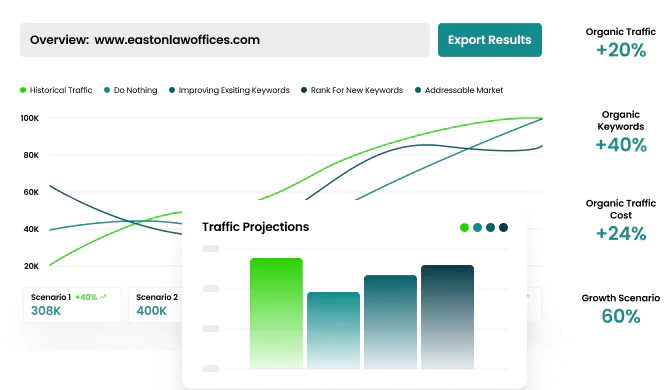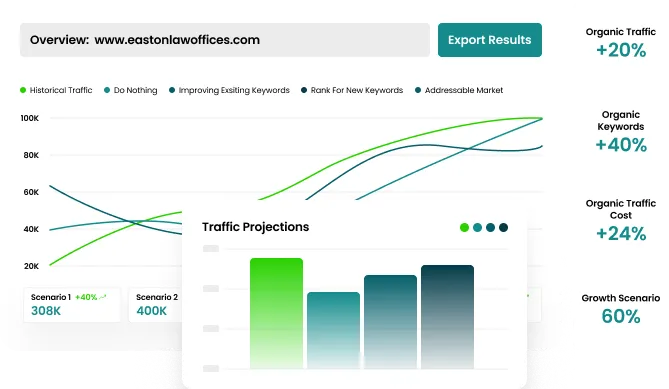SEO for Family Law Firms: A Comprehensive Guide for Lawyers

Family Law SEO Strategy Overview
When we’re talking about family law SEO strategies, we need to get specific. This isn’t just general SEO – divorce, custody, and adoption searches have completely different intent than someone looking for, say, criminal defense.
Here’s the thing about family law SEO. Your potential clients are often in emotional situations. They’re not comparison shopping like they would for a new car. They’re dealing with life-changing events and need someone they can trust.
The biggest challenge? Standing out in a crowded field. Every city has dozens of family law practitioners all fighting for the same keywords.
Ethical Considerations
And ethical considerations are huge here. According to information available on USA.gov, legal advertising has specific regulations that vary by state bar association. You absolutely cannot make promises about outcomes in your SEO content – that’s a fast track to ethical violations.
Effective Content Strategies
What works? Creating content clusters around specific family law issues. Divorce pages that link to related pages about child custody, property division, and spousal support. This approach signals expertise to search engines while actually being helpful to real people.
(I always tell my clients that Google’s getting smarter about detecting genuine expertise versus keyword stuffing – they call this E-E-A-T now, which stands for Experience, Expertise, Authoritativeness, and Trustworthiness.)
Industry-Specific Challenges
Industry-specific challenges also include high competition for terms like “family lawyer near me” or “best divorce attorney.” According to Wikipedia’s article on search engine optimization, local SEO signals are increasingly important, which is actually an opportunity for family law firms since most clients want someone local.
Essential SEO Components
Your family law SEO strategies need to incorporate:
- Local citation building
- Reviews management
- Content that addresses emotional aspects AND legal processes
- Structured data for attorney profiles
- Mobile optimization (people often search in private moments on phones)
Language Considerations
Legal jargon is another challenge. You know what “pendente lite” means. Your clients have no idea. Your content needs to use terms people actually search for while still demonstrating your expertise.
Hiring an SEO Agency and Budget Considerations
Not doing SEO yourself? Smart move.
Finding the right agency matters. A lot.
Selecting the Right Agency
Ask about legal experience. Specifically family law. General SEO skills aren’t enough.
Look at their portfolio. Call their clients. Seriously.
Budget Guidelines
Budget question. What should you spend? Depends on market size and competition. Small town? Maybe $1,500-3,000 monthly. Major metro? Start at $3,000-5,000.
Good agencies show ROI calculations. They track phone calls, form submissions, and consultation bookings.
Avoiding Common Pitfalls
The cost of SEO services for lawyers varies wildly. Beware bargains. $500/month packages? Red flag. They’re using outdated techniques or worse.
Check out the Small Business Administration’s marketing guidance for general budget frameworks. They suggest allocating 7-8% of revenue to marketing for service businesses. Law firms often need more.
PPC vs. SEO Strategy
PPC vs. SEO for lawyers isn’t either/or. It’s both, strategically timed.
SEO is long-term investment. PPC delivers immediate visibility. Wikipedia’s page on pay-per-click explains how these systems work, but here’s my practical take: use PPC for practice areas where you need clients now. Use SEO for sustainable growth.
For new firms, I usually recommend starting with PPC while building SEO. For established firms, a 70/30 split (SEO/PPC) often makes sense.
Rebranding Considerations
Now here’s where it gets tricky. Rebranding and SEO considerations need careful planning. Changing your domain name? You could lose years of SEO equity.
When rebranding:
- Plan 301 redirects for every URL
- Keep site structure similar if possible
- Maintain Google Business Profile consistency
- Announce changes to referring sites
- Monitor backlinks closely
Contract Terms
And tell your SEO team BEFORE making website changes. Not after. Please.
Contract terms matter too. Avoid long-term contracts initially. Start with 6 months. Good agencies earn your loyalty, not lock you in.
SEO Trends in the Legal Industry: Future Insights
I am incredibly excited about where legal SEO is heading. The changes we’re seeing in search engine algorithms are revolutionary for law firms that actually provide quality service. Google is getting ridiculously good at identifying real expertise versus fake authority.
The Evolution of SEO
Remember fifteen years ago when you could just stuff “family lawyer” into your page fifty times and rank well? Those days are GONE. The future belongs to authentic expertise.
The National Institute of Standards and Technology (NIST.gov) has been documenting how machine learning is transforming information retrieval systems. This directly impacts how search engines evaluate legal content. It’s fascinating stuff if you’re a tech geek like me.
Mobile-First Revolution
Mobile-first indexing has completely changed the game for attorneys. I cannot stress this enough. Google now primarily uses the mobile version of your site for ranking and indexing. But here’s what many lawyers miss: it’s not just about having a site that works on phones. It’s about creating a mobile experience that answers emotional, urgent questions quickly.
Think about it. Someone just got served divorce papers. They’re upset, confused. They grab their phone and search “what to do after being served divorce papers.” If your site loads slowly or makes them pinch and zoom, they’re gone.
Voice Search Optimization
Voice search optimization for attorneys is next frontier stuff. According to Wikipedia’s article on search engines, over 20% of searches are now voice-based. But legal searches by voice follow different patterns.
“Alexa, find me a family lawyer” versus typing “family lawyer Chicago.”
You know what this means for your content? Complete sentences. Natural language. Question-and-answer formats. FAQ pages are gold for voice search.
Content Management Evolution
Content management systems for lawyers are evolving too. WordPress still dominates, but specialized legal CMS platforms are emerging with built-in schema markup and compliance features. They’re worth considering when you refresh your site.
The Growing Digital Divide
But here’s an uncomfortable truth about SEO trends in the legal industry – there’s a widening gap between firms that adapt and those that don’t. The cost of entry keeps rising. Sophisticated competitor analysis tools, content creation, technical SEO – it’s a substantial investment.
The firms winning in 2023 and beyond are treating their websites as digital assets, not digital brochures.
Algorithm Updates Impact
Algorithm updates and impacts hit legal sites particularly hard. The helpful content updates of 2022-2023 specifically targeted professional service firms. Many lawyer websites saw 30-40% traffic drops overnight.
Why? Because they were publishing thin content optimized only for search engines, not real clients with real problems.
Why SEO is Important for Family Law Firms
If you are a family law firm, then SEO is critical to your success. With a good SEO plan, you can reach your potential clients when they are searching for legal services online. Here are some reasons why SEO is important for family law firms:
Increased Online Visibility
SEO helps improve your online visibility, making it easier for potential clients to find you when they search for legal services. By optimizing your website and content for search engines, you can rank higher on search engine results pages (SERPs) and get more organic traffic to your site. This increased visibility can lead to more leads and ultimately more clients.
Competitive Advantage
SEO can give you a competitive advantage over other family law firms in your area. If you are ranking higher on SERPs, you are more likely to be seen by potential clients than your competitors. By using SEO best practices, you can improve your rankings and attract more visitors to your site.
Trust and Authority
Having a high-ranking website can help establish your firm as a trusted and authoritative source in the legal industry. By providing helpful content and information, you can build confidence and trust with potential clients. This can lead to more referrals and word-of-mouth marketing, which can be a powerful tool for family law firms.
Targeted Traffic
SEO allows you to target specific keywords and phrases that potential clients are searching for. By conducting keyword research and optimizing your content, you can attract visitors who are more likely to be interested in your services. This can lead to higher quality leads and ultimately more clients.
Cost-Effective
SEO is a cost-effective way to attract new clients to your family law firm. Unlike advertising, which can be expensive, SEO allows you to take advantage of the popularity of law-related keywords without a large ad budget. By investing in SEO, you can generate more organic traffic and potential clients to your site.
In summary, SEO is critical to the success of family law firms. By improving your online visibility, building trust and authority, targeting specific keywords, and being cost-effective, SEO can help you attract more potential clients and ultimately grow your business.
SEO Strategies for Family Law Firms

When it comes to SEO for family law firms, there are several strategies that you can use to improve your online visibility and attract potential clients to your website. Here are some effective SEO strategies that can help you achieve your goals:
Keyword Research and Optimization
Keyword research is the foundation of any successful SEO strategy. By identifying the most relevant and high-volume keywords for your practice areas, you can optimize your website content to rank higher in search engine results pages (SERPs) and attract more organic traffic.
To conduct keyword research, you can use tools like Google Keyword Planner, SEMrush, or Ahrefs. Once you have identified your target keywords, you can optimize your website content, meta tags, and headings to include those keywords and improve your rankings.
Content Creation and Optimization
Creating high-quality, informative, and helpful content is crucial to attracting potential clients and establishing your authority in the legal industry. By publishing blog posts, videos, infographics, and other types of content, you can provide value to your target audience and improve your website’s visibility in search engines.
To optimize your content for SEO, you should focus on creating user-friendly, engaging, and shareable content that includes your target keywords and provides helpful information to your visitors. Additionally, you should ensure that your content is optimized for mobile devices, uses schema markup, and includes images and videos to enhance the user experience.
Family Law Website Creation and On-Page SEO
Your website is the foundation of your online presence, and it should be optimized for both search engines and users. To improve your website’s visibility in search engines, you should focus on on-page SEO factors like meta tags, headings, internal linking, and site speed.
Additionally, you should ensure that your website is user-friendly, easy to navigate, and provides a positive user experience. This can include optimizing your website for mobile devices, using clear and concise language, and providing helpful content and resources to your visitors.
Local SEO for Family Law
For family law firms that serve a specific geographic area, local SEO is crucial to attracting potential clients and improving your online visibility. By optimizing your Google My Business profile, creating local business profiles, and building local citations, you can improve your visibility in local search results and attract more local visitors to your website.
Additionally, you should focus on creating helpful and informative content that is relevant to your local audience, including information about local laws, regulations, and procedures.
Backlinks and Link Building
Backlinks are an important ranking factor in search engine algorithms, and they can help you improve your website’s authority and attract more organic traffic. To build high-quality backlinks, you should focus on creating helpful and informative content that other websites will want to link to, reaching out to other websites in your industry to request backlinks, and using social media to promote your content and attract more links.
Family Law Firm Blog
A law firm blog is an effective way to establish your authority in the legal industry, attract potential clients, and improve your website’s visibility in search engines. By publishing helpful and informative blog posts on a regular basis, you can provide value to your target audience and improve your website’s rankings for your target keywords.
To optimize your law firm blog for SEO, you should focus on creating high-quality, informative, and helpful content that includes your target keywords, provides value to your readers, and encourages social sharing and engagement.
Technical SEO for Family Law Firm Websites

When it comes to optimizing your law firm website for search engines, technical SEO is just as important as the content you publish. Technical SEO involves optimizing your website’s performance, structure, and code to ensure that search engines can crawl and index your site effectively. Here are some key areas of technical SEO that you should focus on:
Improve Website Speed
Website speed is a critical factor in user experience and search engine rankings. Slow-loading pages can frustrate users and cause them to leave your site, which can negatively impact your bounce rate and search engine rankings. To improve your website speed, consider implementing the following best practices:
- Minimize HTTP requests by combining and compressing files
- Optimize images by compressing and resizing them
- Use a content delivery network (CDN) to distribute your content across multiple servers
- Enable browser caching to reduce load times for returning visitors
Mobile-friendliness
Like we briefly touched upon earlier, with more and more people using mobile devices to browse the web, it’s crucial that your law firm’s website is mobile-friendly. A mobile-friendly website is one that is designed to be viewed on smaller screens and is optimized for touch-based navigation. To ensure that your website is mobile-friendly, consider the following:
- Use responsive design to adapt your website to different screen sizes
- Optimize your website’s layout and navigation for touch-based devices
- Ensure that your website’s content is easy to read on smaller screens
- Use mobile-friendly plugins and tools to enhance your website’s functionality
Schema Markup
Schema markup is a type of structured data that can help search engines understand the content on your website. By using schema markup, you can provide additional information about your law firm, such as your location, contact information, and areas of practice. This can help improve your visibility in search results and make it easier for potential clients to find you. To implement schema markup on your website, consider the following:
- Use schema markup to provide additional information about your law firm
- Ensure that your schema markup is accurate and up-to-date
- Use a schema markup generator to simplify the process
By focusing on these key areas of technical SEO, you can improve your law firm website’s performance, user experience, and search engine rankings.
Competitor Research & Analysis

When it comes to SEO for family law firms, one of the most critical steps is competitor research and analysis. By understanding what your competitors are doing, you can identify gaps in your own strategy and find opportunities to improve your rankings.
To begin your research, identify your top competitors in the family law space. Look for firms that are ranking well for your target keywords and have a strong online presence. Once you have a list of competitors, start analyzing their websites and online marketing efforts.
Some key areas to focus on when analyzing your competitors include:
- Keywords: Look at the keywords your competitors are targeting on their websites and in their content. Identify which keywords they are ranking for and where they are placing them on their site.
- Content: Analyze the type of content your competitors are producing and how frequently they are publishing it. Look at the topics they are covering and the format they are using (blog posts, videos, infographics, etc.).
- Backlinks: Examine the backlinks your competitors have earned and where they are coming from. Identify which sites are linking to them and what types of content they are linking to.
- User Experience: Evaluate how easy it is to navigate your competitors’ websites and find the information you need. Look at their site speed, mobile responsiveness, and overall design.
Once you have gathered this information, use it to identify areas where you can improve your own SEO strategy. For example, if you notice that your competitors are ranking well for a particular keyword, consider creating content around that keyword to compete with them. Similarly, if you notice that your competitors are earning a lot of backlinks from a particular site, consider reaching out to that site to see if you can earn a link as well.
By conducting thorough competitor research and analysis, you can gain valuable insights into what is working in the family law space and find ways to improve your own SEO strategy.
Family Lawyers Customer Review Management

Managing customer reviews is an essential part of your family law firm’s online reputation management strategy. Positive reviews can help you attract new clients, while negative reviews can damage your reputation and turn away potential clients. Here’s what you need to know about managing your family law firm’s customer reviews:
Encourage Clients to Leave Reviews
The first step to managing your family law firm’s customer reviews is to encourage your clients to leave reviews. You can do this by sending follow-up emails after a case is closed, including a link to your review page. You can also include a link to your review page on your website and social media profiles.
Respond to Reviews
It’s important to respond to both positive and negative reviews. Responding to positive reviews shows that you appreciate your clients’ feedback and care about their experience. Responding to negative reviews shows that you take client feedback seriously and are committed to improving your services.
When responding to negative reviews, be sure to address the specific concerns raised by the client. Apologize for any mistakes or misunderstandings and offer to address the issue privately. This shows potential clients that you are committed to resolving issues and providing excellent customer service.
Monitor Your Reviews
Monitoring your reviews is essential to managing your family law firm’s online reputation. Set up alerts so that you are notified when a new review is posted. This allows you to respond quickly to any negative reviews and address any issues raised by clients.
Use Reviews to Improve Your Services
Customer reviews can be a valuable source of feedback on your family law firm’s services. Use this feedback to identify areas where you can improve and make changes to your services. This shows potential clients that you are committed to providing the best possible service and can help you attract new clients.
In conclusion, managing your family law firm’s customer reviews is an essential part of your online reputation management strategy. Encourage clients to leave reviews, respond to both positive and negative reviews, monitor your reviews, and use reviews to improve your services. By following these tips, you can build a strong online reputation and attract new clients to your family law firm.
Optimizing for Search Engines

When optimizing your family law firm’s website, Google is the search engine you should focus on (LLM’s are quickly gaining ground though!). Google is the most popular search engine, and it offers several tools that can help your website rank higher in search results. Here are some ways to optimize with Google:
Google My Business Page
Creating a Google My Business page is an essential step to optimizing your law firm’s website. This free tool allows you to manage your business information, such as your address, phone number, and hours of operation. By having a Google My Business page, your law firm will appear in the “Local Pack,” which is a list of businesses that appear at the top of the search results when someone searches for a local service.
To optimize your Google My Business page, make sure you have accurate and up-to-date information, including your business name, address, phone number, and website URL. You should also add photos of your law firm and include a description of your services.
Google Map Pack
The Google Map Pack is a section of the search results that displays a map with local businesses that match the search query. To appear in the Google Map Pack, you need to have a Google My Business page and optimize it for local search.
To optimize your Google My Business page for local search, make sure your address is accurate and up-to-date. You should also include keywords in your business description that are relevant to your location and services.
Google E-E-A-T and Family Law Firms
Google E-E-A-T stands for experience, expertise, authoritativeness, and trustworthiness. Google uses these factors to determine the quality of a website and its content. To optimize your law firm’s website for Google EEAT, you need to demonstrate your expertise, authority, and trustworthiness in your content.
To demonstrate your expertise, create content that is informative and helpful to your audience. To demonstrate your authority, include links to reputable sources and other websites in your content. To demonstrate your trustworthiness, make sure your website is secure, and include testimonials from satisfied clients.
In conclusion, optimizing your family law firm’s website with Google can help you rank higher in search results and attract more clients. By creating a Google My Business page, optimizing for local search, and demonstrating your expertise, authority, and trustworthiness, you can improve your website’s visibility and credibility.
Online Directories for Lawyers

One of the most effective ways to increase your online presence as a family law firm is by listing your firm on online legal directories. Plus, LLMs use these directories to determine authority in your field. More authority = more visibility. Period.
These directories are online databases that allow potential clients to find your firm when they search for legal services online. Here are some of the top online directories for lawyers:
1. Avvo
Avvo is a popular online directory that allows potential clients to search for lawyers by practice area and location. It also provides lawyer ratings and reviews, making it easier for clients to make informed decisions about which lawyer to hire. Avvo offers a free listing for lawyers but also offers paid advertising options to increase visibility.
2. FindLaw
FindLaw is one of the oldest and most established legal directories online. It offers lawyer directories along with online legal Q&A forums, free legal guides, and articles. FindLaw also provides paid advertising options for lawyers looking to increase their visibility.
3. Justia
Justia is a legal directory that offers a free listing for lawyers, along with paid advertising options. It allows potential clients to search for lawyers by practice area and location and also provides lawyer ratings and reviews.
4. Lawyers.com
Lawyers.com is another popular legal directory that allows potential clients to search for lawyers by practice area and location. It also provides lawyer ratings and reviews, making it easier for clients to make informed decisions about which lawyer to hire. Lawyers.com offers both free and paid listing options.
5. Martindale-Hubbell
Martindale-Hubbell is one of the oldest and most respected legal directories online. It offers a free listing for lawyers but also offers paid advertising options to increase visibility. Martindale-Hubbell also provides lawyer ratings and reviews, making it easier for clients to make informed decisions about which lawyer to hire.
By listing your family law firm on these online directories, you can increase your online visibility and attract more potential clients to your website. However, it’s important to keep in mind that simply listing your firm on these directories is not enough to guarantee success. You’ll also need to optimize your website for search engines and create high-quality content to attract and retain potential clients.
Family Law SEO FAQs
If you are considering implementing an SEO strategy for your family law firm’s website, you might have some questions. Here are some frequently asked questions that can help you understand what SEO is, how it works, and what you need to know to get started.
Why is SEO important for family law firms?
SEO stands for search engine optimization. It is the process of improving your website’s visibility and ranking on search engines like Google, Bing, and Yahoo. SEO is important for family law firms because it helps potential clients find your website when they search for legal services related to family law. By optimizing your website for search engines, you can attract more traffic to your site, generate more leads, and increase your chances of converting those leads into clients.
How does SEO work to get me more clients?
SEO involves several strategies and techniques that aim to improve your website’s visibility and ranking on search engines. Some of these strategies include keyword research, on-page optimization, link building, content creation, and local SEO. By implementing these strategies, you can improve your website’s relevance, authority, and trustworthiness in the eyes of search engines, which can lead to higher rankings and more traffic.
How long does it take to see results from SEO?
SEO is a long-term strategy that requires patience and persistence. It can take several months or even years to see significant results from SEO, depending on the competitiveness of your industry, the quality of your website, and the effectiveness of your SEO strategy. However, by consistently implementing best practices and monitoring your progress, you can gradually improve your website’s visibility and ranking on search engines over time.
Do I need to hire an SEO expert to optimize my website?
While it is possible to implement an SEO strategy on your own, hiring an experienced SEO expert can help you save time, avoid costly mistakes, and achieve better results. An SEO expert can help you identify the most effective strategies for your specific needs, create high-quality content, build high-quality backlinks, and track your progress over time. However, it’s important to choose an SEO expert who has a proven track record of success and uses ethical, white-hat SEO practices to avoid penalties and maintain your website’s credibility.
Optimize Your Family Law Firm Web Presence to Increase Online Leads
At RizeUp Media, we understand the unique needs of family law firms regarding online marketing. We take a comprehensive approach to SEO, combining best practices in content marketing and link building with customized strategies tailored to your firm’s goals and priorities. Contact us today to learn how our SEO services can help your family law firm reach its fullest potential. Let’s take your firm to new heights with SEO.
Our Latest Blog Posts
How AI is Changing Law Firm Marketing in 2025: What Lawyers Need [...]
What's Actually Happening... The Short Version: Google is now using AI to…
Law Firm Marketing: A Comprehensive Strategy Guide for Lawyers
How an Effective Marketing Strategy Can Help Your Law Firm Grow In…
Artificial Intelligence for Lawyers – 9 Ways AI Can Boost Law Firm [...]
As an attorney competing in the modern marketplace, you need to be…
Testimonials
Here's What Our Clients Are Saying




Travis and his team are responsive, creative, and attentive. They are attuned to the specific needs of my business. Highly recommend them!
Dorie Rogers


We have been using large nation-wide firms for marketing. And as usual, initial good service that tails off and gets worse. When Bo decided to open his own firm, I trusted that his attention to detail and personal service would be great, and I was right. RizeUp has…
Juan Armenta


RizeUp Media has taken an active, turnkey approach to our digital marketing. They provide a strategic, integrated and cost-effective marketing plan that is tailored to our short- and long-term revenue growth objectives. I have worked with Bo Bryant & Travis Hoechlin for several years now and their expertise,…
Jason Martinez


RizeUp Media delivers! I have used other marketing services, but none compare to the outstanding results RizeUp delivers. The company is professional, friendly, helpful and deliver where other marketing services fall short. Highly recommended!!
Michelanne Hrubic


RizeUp has been terrific. Their team of truly experienced experts and professionals worked very hard to put our business first.
Andrew Chivinski


We have tried three different web development companies and RizeUp is really the strategic partner we were looking for. They went beyond just putting up a website. They focused on what made our firm different and our goals regarding which clients to reach. I truly feel that we…
Drummond McCunn


I have used them for several months, after switching from Findlaw. They rock.
Raymond Hane


I recently started working with RizeUp Media for my law firm’s website and SEO work. I am so impressed with this company and highly recommend them.
Bill Cumming


We switched to RizeUp early in the year, and the new web site launched 3 months ago. We've already seen a solid uptake in calls from the web site, and a higher number of potential clients. Very solid work, and the people are friendly, responsive, professional, and great…
Matt Bangerter


We switched providers to RizeUp Media a few months ago. I was tired of having to worry about our website and the SEO work that is required to keep up with all the changes in Google Search. My prior provider was not responsive and barely did anything. RizeUp…






